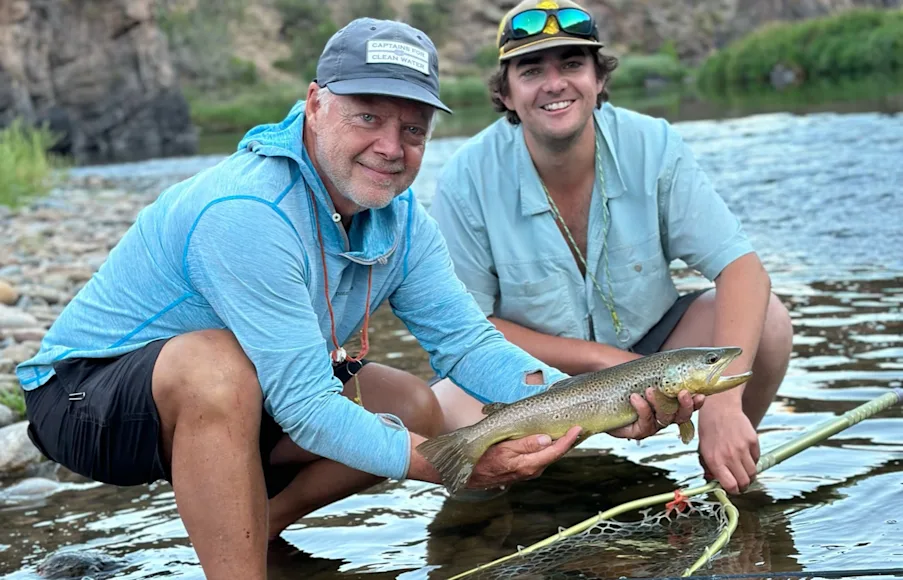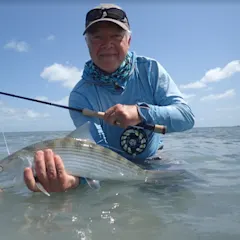The hopper-dropper wasn’t working. Not like it should have been. We picked up a few trout—most on small sparkly nymphs suspended under finger-thick foam grasshopper flies—but the water should have been frothing with hungry browns and rainbows. There should have been smashing surface strikes. Like the bite had been for two weeks, or so we’d heard. And so we’d expected.
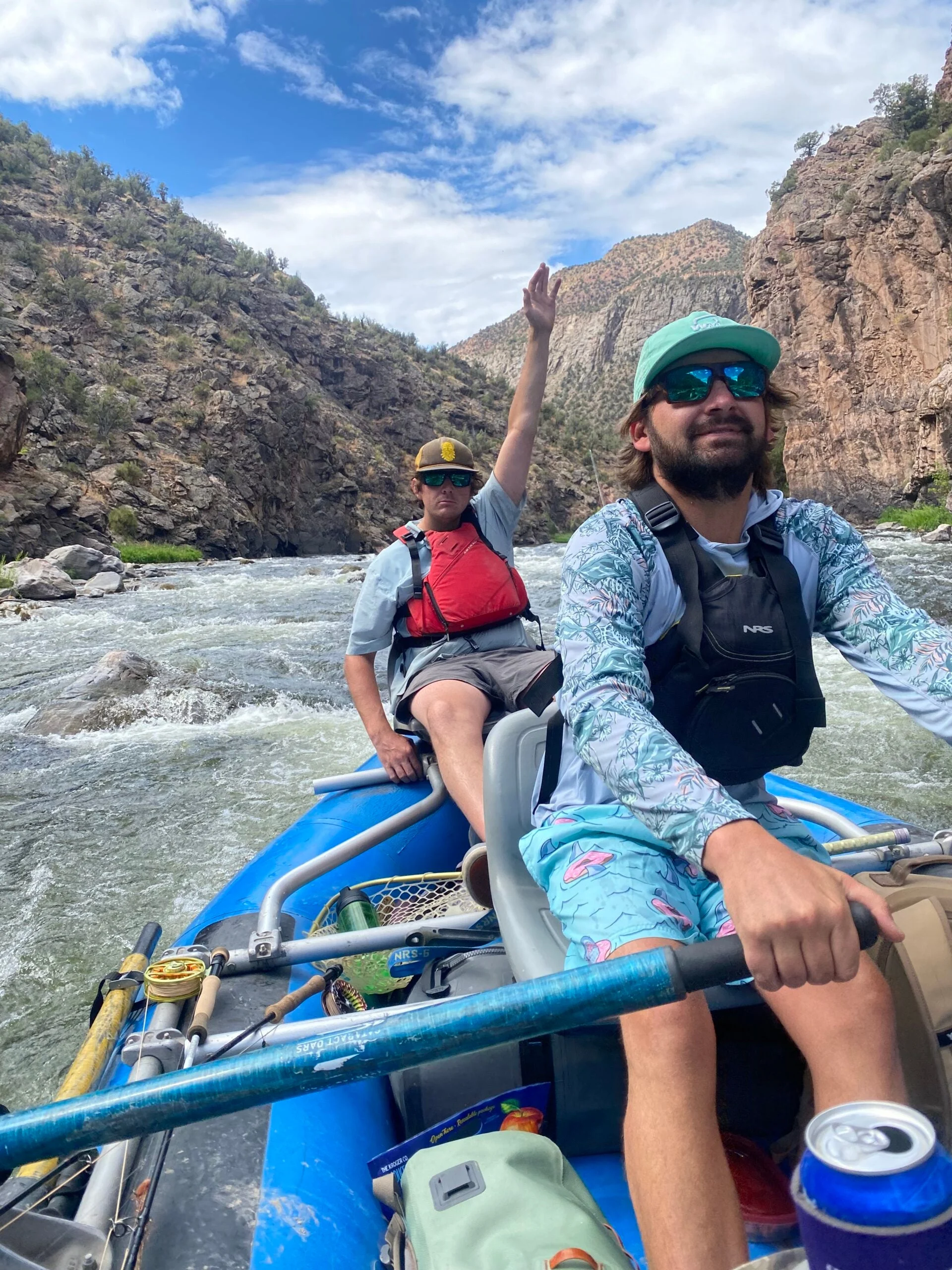
It made no sense. It was midsummer in the Northern Rockies, and the water was so clear you had to blink twice to convince yourself that there was any in the river bed at all. The stream-side brush was crawling with hoppers—honkers big enough to put two in a hot dog bun and call it lunch. We had five anglers on two rafts, so there were plenty of flies in the water. But for the first full day, fishing hovered between surprisingly slow and this stinks, although no one wanted to complain. We’d planned this trip for months, and getting rafts and frames and camping equipment to the put-in was an adventure in itself. We were happy to be there, but still….
So, when John asked Andrew to toss him his streamer box, we all took notice. It was middle-of-the-day bright. Not a cloud in the sky. The sun was baking the cliff walls, the rafts, and the water surface like a stone pizza oven. You don’t chunk streamers in these conditions.
“I thought he was an idiot,” Andrew would later admit.
He was not an idiot.
Switching Gears
Certain times of fishing can give you tunnel vision. When the black caddis are supposed to coming off in sheets, but they’re not, you still try the black caddis. When the bluegill should be on their beds, but they’re not, you’re still loathe to fish deep. Hopper-dropper season can definitely give you tunnel vision, and we were gazing down a tunnel the diameter of a toilet-paper tube. This had to work. So, we combed the water with hopper-droppers. What was wrong? Why weren’t these summer trout giving us the love? We’d come loaded down with enough foam hoppers in our fly boxes that we could have used them for PFDs. We had traditional nymphs and tungsten beaded-headed nymphs and Sparkle Donkeys and jig-headed Perdigon nymphs.
We tried them all. The trout were: Meh. Maybe we’ll nibble on a few. Maybe we won’t.
But it didn’t take long for John’s streamer switch to open our eyes. Hoots and hollers from him and his buddy, Buck, rang up and down the river. “We just had, like, five follows in a row and then an eat!” John called out. “Crazy!”
Talk about a quick case of FOMO. For a few minutes, my raft mates and I felt like we were teenagers looking at the Instagram posts from a party we weren’t invited to. But soon we were scrambling for streamers. Andrew had a mishmash in a box that looked like it held three wet cats. Jack had a box of bull-trout flies left over from his three summers of guiding in Montana. They were Sex Dungeons and Galloup’s Silk Kitties and Flatheads and Jack’s Wet Sock fly that looked pretty much like you might imagine. Our options were ugly and uglier—which are pretty good choices when it comes to streamer fishing.
Bank Robbery
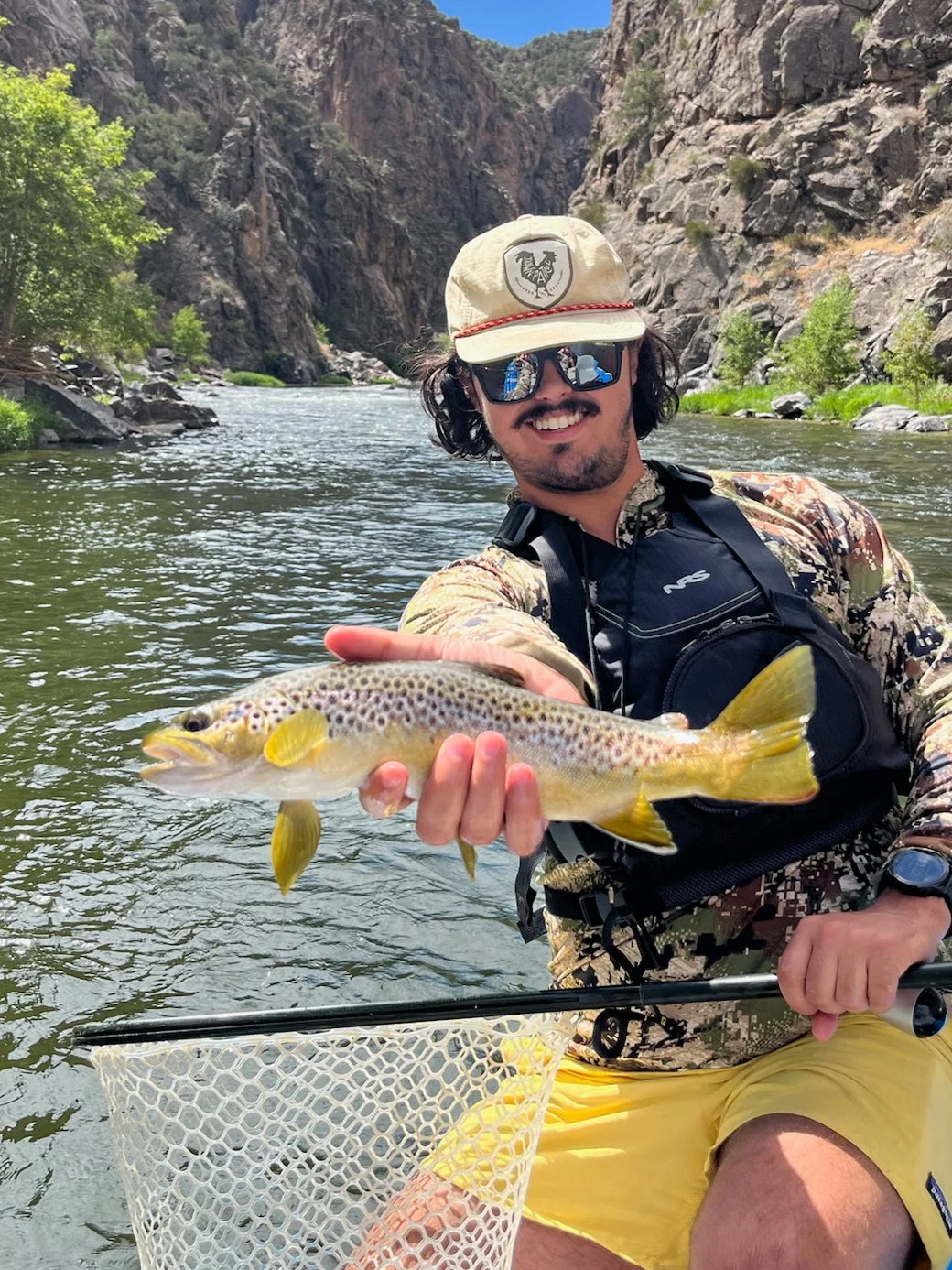
The streamers flipped the switch. It was crazy, and nearly instant. In the clear water, we could see fish chase the flies for 10 feet and better. Even when they didn’t eat, the thrill of watching a bruiser brown sniff a fly for a half-dozen strips—each micro-instant feeling like the moment of a take—was heart-racing.
It didn’t seem to matter where we fished, as long as we fished streamers. Every other cast brought a reaction—in pocket water, along the banks, in boulder fields. I’d switched to an Orvis prototype rod that will go into production next year. It was designed for this kind of fishing. I could rip up 30 feet of line tethered to a wet streamer with straight 20-pound mono—hardly a delicate package—and change directions in mid-cast with hardly a second thought. But it didn’t seem to matter whether the fly delivery was subtle or splashy. Plunk the streamer down like it was a space capsule splashing down in the ocean, and here they come. On one cast, I’m pretty sure I hit a fish that was sunning on the bank. Instead of spooking, it turned itself into a granny knot twisting around for a strike.
When it works like this, chunking streamers is as close to a spectator sport as trout fishing can get. On the oars, Andrew was having as much fun as Jack and I were on the rods. We all howled with every follow and smashing strike. We could see the fish coming, we could see the fish follow, we could see the fish snub us at the last minute. At those times, it was a good thing trout don’t have middle fingers on their fins. Our feelings might have been hurt.
The fact that it wasn’t supposed to happen this way made it even more rewarding. We felt like we’d found a $100 bill in a parking lot.
“You Gotta Earn the Eat”
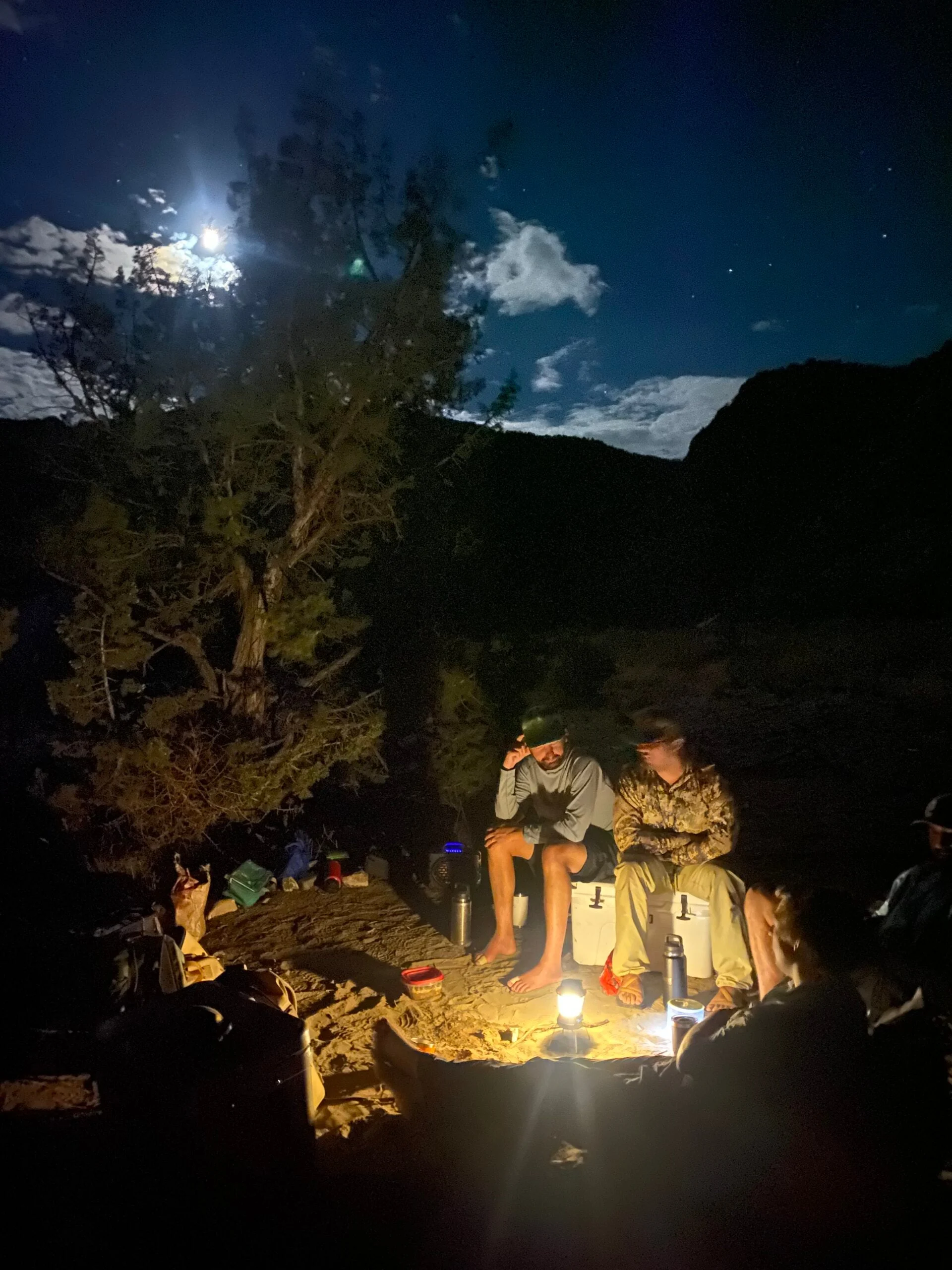
That night, with tents pitched on a tall bluff overlooking the river, we dissected the day. Why such a switch? There had been high winds in the afternoons. A big full moon. Hopper weather for weeks. Maybe the fish were done gorging on crunchy crusty exoskeletons, like you might moan at the sight of three more chicken wings when you’ve already eaten a half-dozen too many.
There was a little self-indictment as well. Our tunnel vision blinded us. We didn’t want to switch things up because, after all, we knew what we were doing. But that’s not the bruiser way the angling world works. I recalled one cast with the hopper-dropper, on the first day, when we were all a little beat down with the slow action. The cast was as perfect as I could produce. Right off the alders, right upstream of a cut bank, an ideal lie. Nothing. Squat.
“Man,” Andrew said. “That cast deserved a fish.” It’s a sentiment most anglers have expressed. That cast? That drift? That spot? You know a fish saw that fly.
“Doesn’t work that way,” Jack piped in. He’d guided in Montana during college, and I’ve learned to listen to him when it comes to chasing trout. “No cast ever deserves an eat. The fish don’t care what you think. You gotta earn the eat, one cast at a time.”
It was a lesson we had forgotten. And a lesson we’ll all remember.

